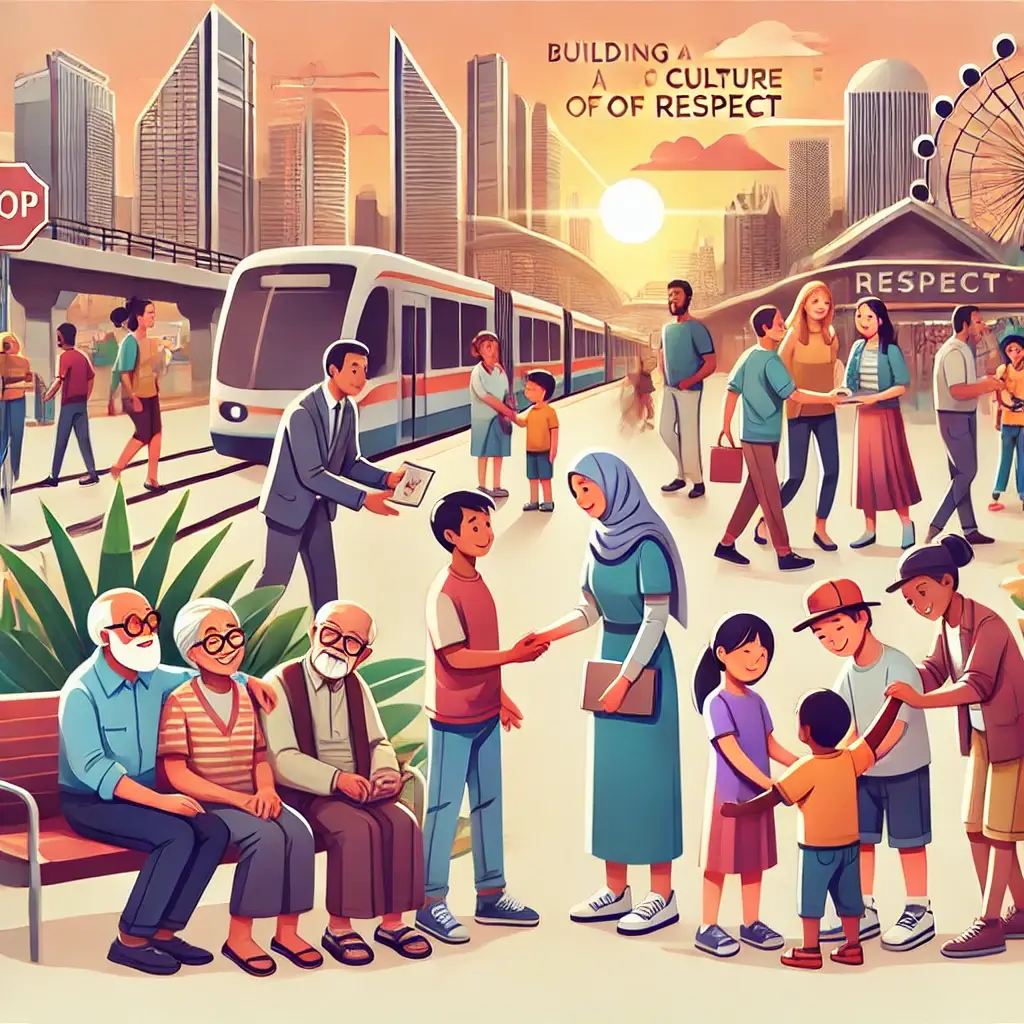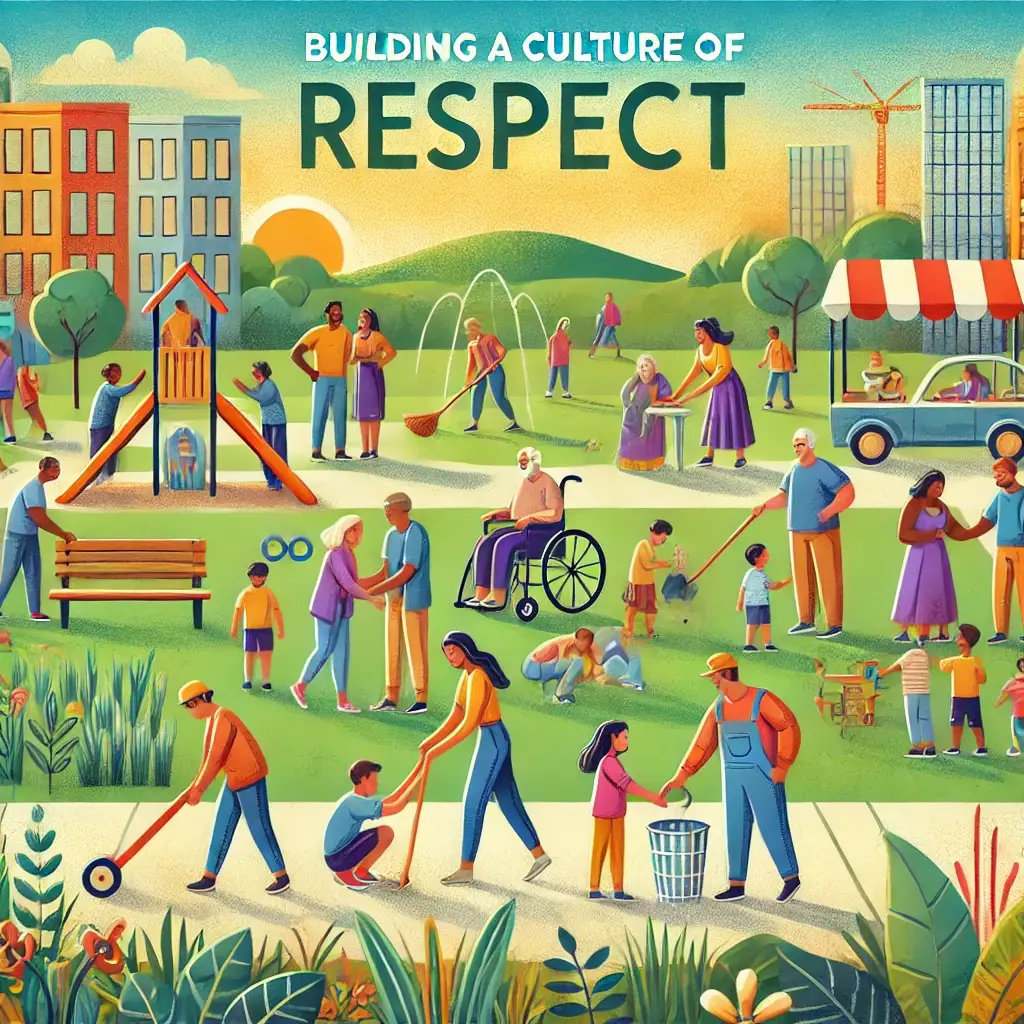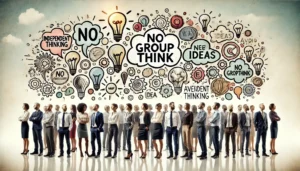Introduction: The Importance of Building a Culture of Respect

Why Respect is the Foundation of a Healthy Society
Building a culture of respect is essential for creating a society that thrives on empathy, trust, and cooperation. Respectful interactions form the backbone of healthy communities, fostering an environment where everyone feels valued. However, the scarcity mindset, which focuses on limited resources and self-interest, often hinders this goal. By shifting away from self-centered attitudes, individuals can contribute to a society that prioritizes respect and responsibility over personal gain.
Today’s fast-paced world, driven by instant gratification, often overlooks the importance of considering others’ needs. This tendency to seek quick rewards can harm empathy and diminish social bonds. Reclaiming respect as a core societal value is a vital step toward building stronger, more supportive communities that honor collective well-being.
Addressing the Scarcity Mindset to Foster Respect
The scarcity mindset, which revolves around the idea of “not enough to go around,” encourages self-focused behavior. In a world where people feel resources are limited, the drive to secure personal gains can overshadow mutual respect. This mindset, prevalent in competitive environments, can be harmful when it extends into everyday life. When individuals prioritize their own needs, the result is often reduced empathy and less willingness to engage in respectful interactions.
Overcoming this mindset is crucial for building a culture of respect. Emphasizing community-oriented values and promoting empathy allows people to see beyond their immediate needs. When individuals recognize the benefits of respectful engagement, society as a whole moves closer to mutual understanding and collaboration.
The Scarcity Mindset and Its Impact on Social Values
How Self-Centered Behavior Affects Respectful Interactions
The scarcity mindset often drives people to focus on their own needs, which can damage the overall culture of respect in society. When individuals operate with a “me-first” mentality, they may neglect to consider the broader impact of their actions on others. This self-centered behavior creates an environment where interactions lack empathy, trust, and understanding, all of which are essential for building a culture of respect.
Everyday interactions, whether in public spaces or workplaces, reveal the impact of this mindset. When people prioritize personal gain, they may inadvertently undermine the community’s sense of trust and cooperation. Encouraging a shift from self-interest to community awareness can significantly enhance the culture of respect, fostering more empathetic and considerate interactions.
The Role of Instant Gratification in Undermining Respect
Instant gratification has become a hallmark of modern culture, often encouraging people to seek immediate rewards rather than long-term benefits. This focus on quick gains can weaken respect, as individuals may overlook the importance of considering others in their pursuit of rapid satisfaction. When people prioritize their own desires over collective well-being, it can lead to behaviors that erode mutual respect.
Building a culture of respect requires a shift toward long-term thinking and collective awareness. By promoting delayed gratification and emphasizing the value of empathy, communities can foster an environment where respect is prioritized. This shift not only benefits individuals but also strengthens social bonds, creating a society that values shared responsibility and kindness.
Respect as a Rarity in Modern Interactions
The Decline of Respect in Everyday Interactions
Building a culture of respect is crucial as daily interactions often lack the kindness that fosters community harmony. In a world focused on personal achievements, small yet meaningful gestures of respect—such as listening attentively or showing empathy—are becoming less common. This decline impacts everything from casual encounters to workplace dynamics, eroding the trust that once connected individuals in society.
When respect becomes rare, communities suffer. The bonds that unite people begin to fray, replaced by misunderstandings and conflicts. Encouraging individuals to incorporate respectful gestures into daily life is essential for fostering stronger, healthier relationships and for rebuilding a sense of unity within communities.
The Influence of Media and Influencers on Social Behavior
Media and influencers play a powerful role in shaping attitudes toward respect. Some high-profile influencers achieve success through controversial behaviors, often disregarding kindness in favor of attention-seeking tactics. This trend can send the wrong message, implying that respect is less valuable than notoriety or visibility. In response, communities must champion influencers who promote respect and empathy as pathways to success.
When media highlights respectful behavior as admirable and effective, it can reshape societal values. By amplifying positive examples, media can encourage individuals to prioritize kindness, proving that building a culture of respect is not only attainable but essential for personal and communal growth.
Materialism and Social Validation
How Material Wealth Impacts Social Respect
In many societies, material wealth is often seen as a marker of success, leading individuals to seek validation through possessions rather than relationships. This cultural focus on material gain can undermine respect, as it encourages competition over cooperation. When success is measured by material wealth, interactions may lack empathy and mutual support, leading to a decline in respect.
Building a culture of respect requires shifting the focus from materialism to intrinsic qualities like kindness and empathy. Encouraging society to value these traits over possessions can promote deeper connections, fostering a community that values people for who they are rather than for what they own.
The Effects of Attention-Seeking on Social Bonds
The pursuit of social validation, especially through social media, has contributed to a rise in attention-seeking behaviors. Many people curate idealized versions of themselves online to gain approval, which can create a gap between online personas and real-world relationships. This focus on visibility over authenticity often weakens social bonds, as individuals prioritize online interactions over meaningful, face-to-face connections.
To foster a culture of respect, it’s essential to encourage genuine interactions that go beyond digital approval. By promoting authenticity and real-life engagement, communities can strengthen social bonds and create a culture where respect is valued over superficial attention.
Dependence on Rules Over Common Sense
How Rules Have Replaced Voluntary Respect
As societies evolve, many unspoken rules of respect have been formalized into laws. For instance, behaviors such as giving up a seat on public transport or yielding to pedestrians were once matters of courtesy, yet today they are often enforced by regulations. This reliance on rules can diminish the intrinsic motivation to act with respect, as people may comply only to avoid penalties.
Building a culture of respect means empowering individuals to act kindly out of personal conviction, not just obligation. When society fosters respect as a voluntary value rather than an enforced rule, it builds stronger, more genuine relationships among community members.
The Impact of a Rule-Heavy Society on Community Bonds
In a rule-heavy society, individuals may begin to view respectful actions as obligations rather than choices, reducing the sincerity of these gestures. When people act out of compulsion, it limits their capacity for genuine empathy. This trend indicates a shift from self-regulation to external enforcement, which can weaken community bonds over time.
To encourage a return to voluntary respect, communities can emphasize personal responsibility and common sense. When individuals are empowered to choose respect freely, society benefits from authentic, trust-filled relationships that enhance collective well-being.
Anonymity and the Decline of Accountability
The Role of Anonymity in Disrespectful Behavior
Building a culture of respect becomes challenging when anonymity reduces accountability. In large cities and online spaces, anonymity often leads to disrespectful behaviors, as individuals feel detached from social consequences. This trend is visible in the rise of “hater” culture online, where people express negativity without fear of repercussions. Such behaviors undermine respect by promoting self-centered actions over empathy.
To counteract this effect, fostering accountability and empathy in both digital and real-life spaces is essential. By encouraging responsible behavior and building supportive communities, society can reduce anonymity’s negative impact on respect.
The Effects of Anonymity in Urban and Digital Spaces
In urban settings, people may act rudely or indifferently due to the sense of anonymity provided by the crowd. Similarly, online platforms allow users to hide behind usernames, often leading to behavior that lacks empathy and kindness. This lack of accountability in digital and urban environments weakens the culture of respect, as individuals are less likely to act considerately when they feel unseen.
Building a culture of respect requires creating a sense of community and connection, even in anonymous settings. Encouraging interactions based on empathy and mutual respect can help counteract the negative effects of anonymity and promote accountability in all spaces.
Social Behavior: Public Persona vs. Private Actions
Differences Between Public and Private Behavior
Many people exhibit respectful behavior in public to maintain a positive image, but this respect may not extend to private actions. This difference between public persona and private behavior raises questions about the authenticity of respect. If individuals only act kindly when observed, their actions may reflect social pressure rather than genuine empathy.
To build a culture of respect, it’s essential to foster behaviors that align across both public and private life. Encouraging individuals to internalize respect as a core value helps bridge this divide, promoting genuine kindness in all situations.
Promoting Intrinsic Respect for Authentic Connections
Psychologists note that people often adjust behavior based on social observation, known as the “Hawthorne effect.” While individuals may act kindly when being watched, their actions might change in private. Cultivating intrinsic respect, where kindness is a personal value rather than a societal expectation, is crucial for building a genuine culture of respect.
By promoting self-reflection and accountability, communities can encourage people to act with empathy and consideration consistently, both publicly and privately. This approach nurtures authentic respect, ensuring that social bonds are built on trust rather than performance.
Conclusion: A Call for Sustainable Respect and Social Cohesion
Building a culture of respect is a collective effort that strengthens communities and promotes harmony. In an era of individualism and instant gratification, fostering empathy, responsibility, and mutual support is more important than ever. By addressing issues like the scarcity mindset, media influence, and anonymity, we can rebuild respect as a central societal value.

Each person plays a role in this process. Small acts of kindness, accountability, and consideration for others contribute to a society where respect is freely given and deeply valued. Together, we can create a culture that honors respect as a legacy, enriching communities and ensuring a supportive environment for future generations.


